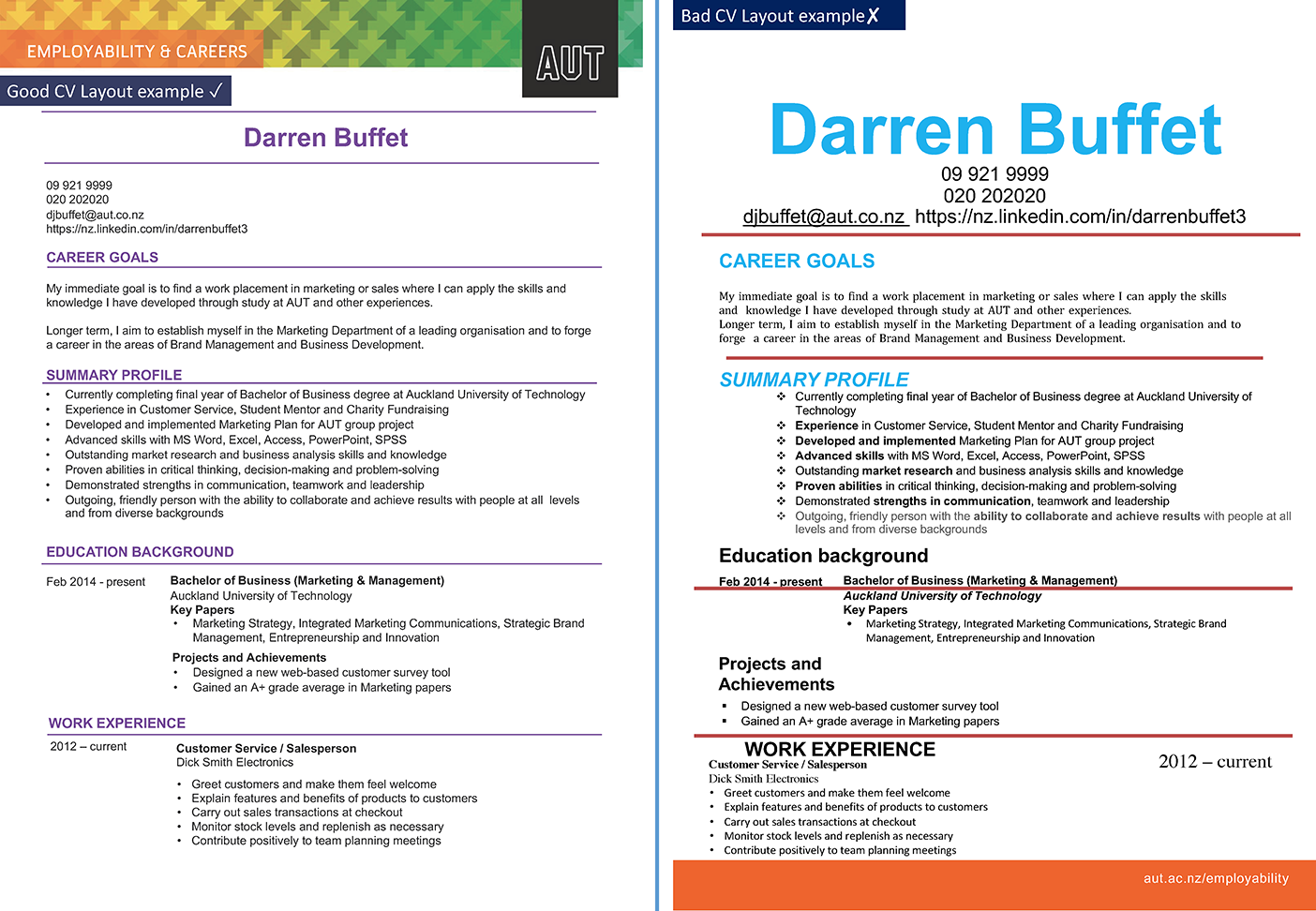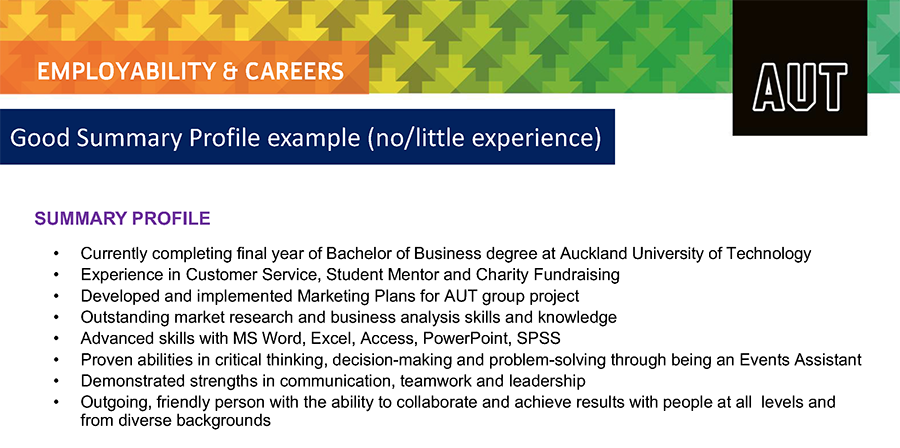7 Tips on creating a great CV

Employers are often flooded with CVs that don’t meet the job criteria or are extremely bland and formulaic. If you haven’t written a CV before or you feel unsure about your content, then book on Elab Online to attend an Employability and Careers CV and cover letter workshop.
The single most important point about CVs is that they are your marketing tool – it is often your CV that lands you a job interview! So make sure it highlights your strengths and skills, focuses on the role and employer, and looks professional and appropriate! Here are 7 CV tips to help you make a good CV.
1/ Layout and format
First impressions count – employers evaluate your CV on content and visual display.
*Use standard A4 paper
*Be careful with colours/images printed on black and white (if you do use colour and images make sure the design doesn’t overwhelm the content)
*Consistent structure and layout are important
*Summarize, be specific and concise
*Make sure you not only spell-check but get a human to check it too
*Balance the white space in your CV
*Use an easy to read font
*Headings should stand out so that the reader can quickly find relevant information

.............…...……...………...………...……...……...
2/ Target, target, target
*Target your CV to each job you apply for. You do this by tweaking your CV for each job, emphasising the strengths and expertise you have that the employer is asking for in the job description. Don’t send out the same generic CV to hundreds of employers. It doesn’t work!
3/ Have a Summary Profile/Skill Summary
This is extremely important and should sit on the first page of your CV. It should contain bullet points briefly outlining relevant education, experience and skills (not full sentences). Focus and refresh it for each role by:
- Reviewing the details of the job in the advertisement
- Identifying qualifications asked for
- Identifying skills asked for, then including all the skills you have that they want
- Use active words, ‘proficient user of programing languages xxxx xxxxx’, rather than just listing the programing languages
NB: Make sure you highlight your use of those skills in your work history as well

.....................................................................................
4/ Be clear and relevant
- Put your Work History and your Education in chronological order, from newest to oldest. Employers want to be able to quickly see what you’re currently doing, rather than wade through information from 10 years ago
- Include proper dates, eg Feb 2018 – May 2020, not 2018
- Include relevant papers from your qualification, but not every paper. Grades are only important if they are high
- With Work History/Experience, use verbs to describe tasks eg Assist and motivate, Write press releases, Negotiate with, Effectively communicate…..
- Remember to include achievements in a subsection at the end of each work history/experience entry, but only genuine achievements, eg, Met targets every month, Promoted to duty manager when manager was away, Won employee of the month ….
5/ Think about other highlights ...
- Add other job focused accomplishments, under headings such as Other Certifications or Short Courses, if they are relevant to the job you're applying for or show flexibility or interest in learning
- What other achievements can you include that show your leadership or team qualities or something unique about you? Use a heading such as Other Achievements to include sports blues, sports, community or arts representation, church leadership, ongoing volunteering, the AUT Edge Award etc
6/ Highlight your interests
- Interests and hobbies show you have a life outside of study and have things you can chat about with customers or colleagues. They also reveal a lot about your personality
- Be honest though. If you say you go tramping, you can get caught out if you don’t tramp and a recruiter or employer starts chatting about tramping as an icebreaker with you at the start of a job interview
7/ Pick appropriate referees
- Make sure you ask people if they are happy to be your referee, then keep them up to date with the roles and employers you’re targeting. You will appear disorganised if referees are surprised you’ve applied for a job, or don’t know you’ve referred them.
- Think carefully about who to ask. Who would describe you in the best light for the role? Who can talk about you with passion and enthusiasm? (And no, that cannot be aunty, best friend, class mate)!
Gone into shock?
If these 7 CV tips sound like a foreign language to you, don't worry. Sign up for a CV workshop on Elab Online, run by our great Employability and Careers team who are regularly in touch with employers about what is wanted on a CV and will help you work out hoe to create your own great CV.
Written by AUT employability & careers writer Angela McCarthy, designed by AUT careers specialist Rebecca Du.
CVs/Cover letters
- 7 Tips on creating a great CV
- Personal Statement? Career Objective? What?
- Why bother with LinkedIn?
- Why bother to write a cover letter?
Job search skills
Career advice
- Bringing passion into the mix
- Don't let rejection end your dream
- Employability Skills - how to figure them out!